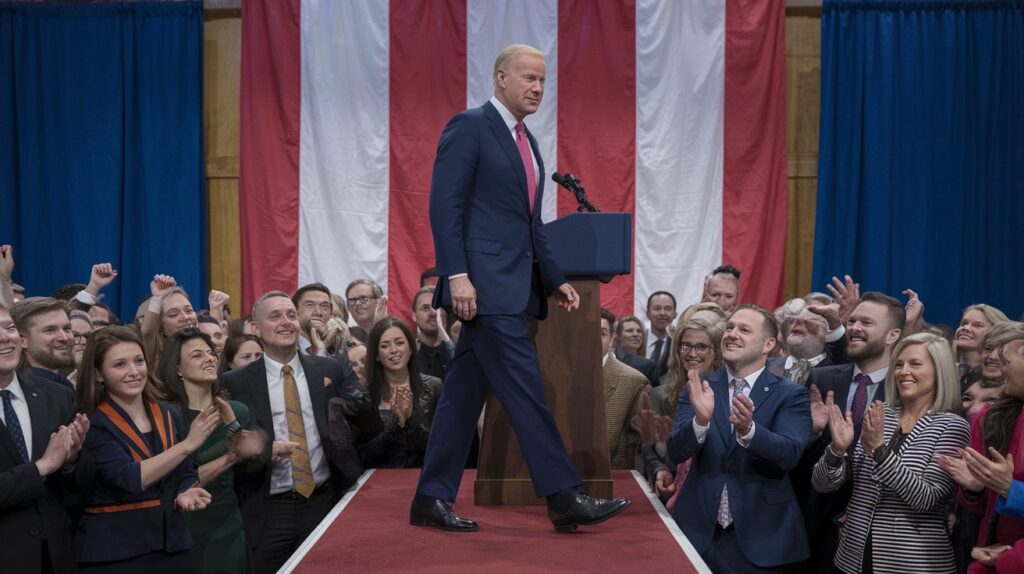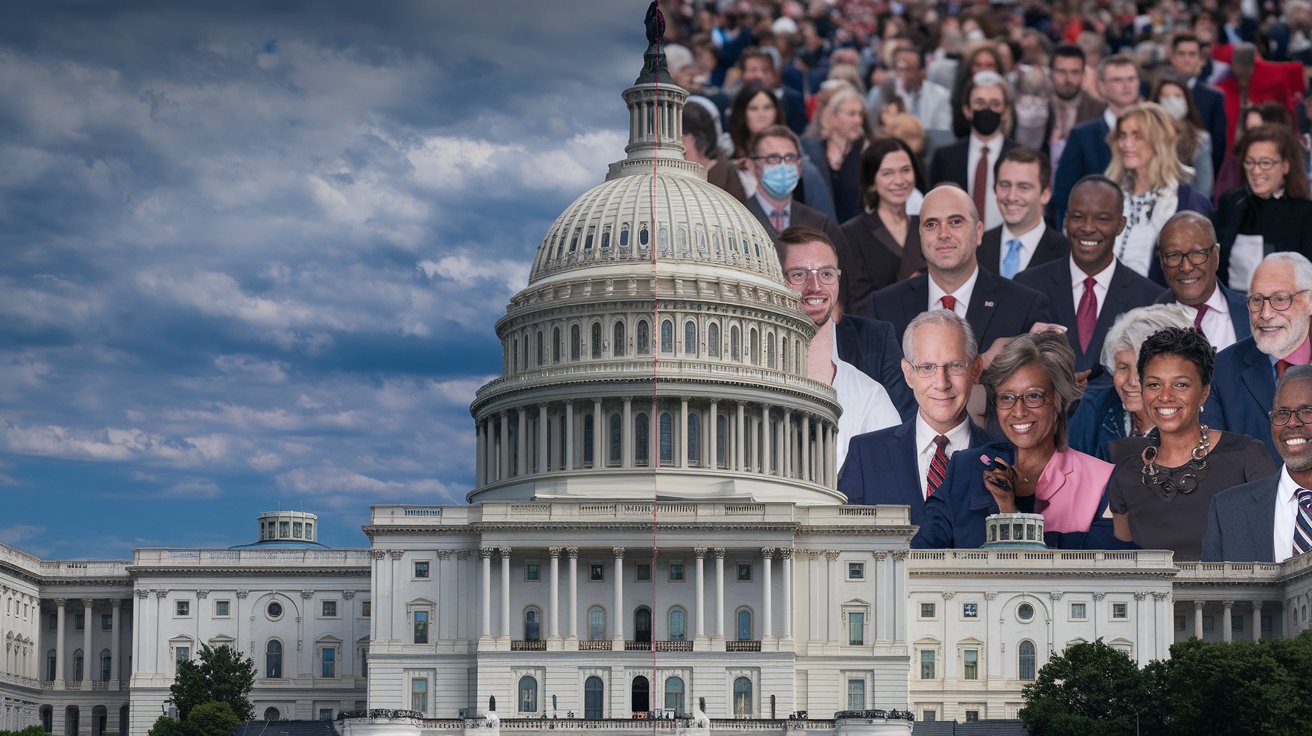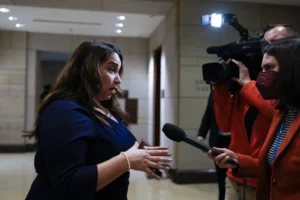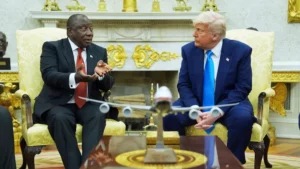The Impact of Withdrawals on US Political Landscape
The political landscape of the United States is a complex and ever-evolving terrain, influenced by myriad factors including economic conditions, social movements, and international affairs. However, one of the most significant dynamics that has emerged in recent years is the impact of withdrawals—a term that can encompass resignations, retirements, and declines in public support. Understanding these withdrawals is crucial for deciphering the trends and transformations shaping American politics today.
Table of Contents
Understanding the Term ‘Withdrawals’
In the context of U.S. politics, “withdrawals” refer to instances when political figures either step down from their roles or experience significant reductions in their political capital. This phenomenon can manifest in various forms, including:

- Resignations from prominent political positions.
- Retirement announcements by incumbent politicians.
- Withdrawal of support from previously popular policies or ideologies.
- Declining voter interest leading to lower turnout rates.
Each of these types of withdrawals carries its own ramifications for the political ecosystem, often leading to shifts in party dynamics and electoral outcomes.
The Ripple Effect on Political Parties
The effect of withdrawals is particularly pronounced within the two major political parties: the Democratic Party and the Republican Party. When key figures within these parties step aside, it opens up a vacuum that can lead to internal challenges and ideological shifts.

Consequences for the Democratic Party
When prominent Democratic figures withdraw, it often leads to a scramble for leadership positions within the party. This can have both positive and negative consequences:
- Positive Developments: New leaders may bring fresh ideas and invigorate the party base, leading to renewed energy and engagement among voters.
- Challenges Faced: The absence of seasoned leaders can result in divisions among factions within the party, as competing ideologies vie for dominance.
The result can be a delicate balancing act, as the Democratic Party must navigate its progressive wing while retaining the support of more moderate constituents.
Impacts on the Republican Party
Similarly, withdrawals within the Republican Party can lead to both opportunity and turmoil:
- Opportunity for Emerging Leaders: When established figures step down, it allows for the rise of a new generation of leaders who may possess different perspectives and strategies to engage the base.
- Potential for Internal Conflict: Just as with the Democrats, withdrawals can exacerbate existing tensions between traditional conservatives and more radical elements within the party, ultimately challenging their unity.
Both parties face the challenge of ensuring that their core values resonate with an electorate that is becoming increasingly polarized.
Shifting Voter Sentiment and Engagement
Withdrawals can also result in shifting voter sentiment, affecting engagement and turnout. When prominent figures leave the political stage, it can lead to a disillusioned electorate that feels disconnected from the political process.

Factors Contributing to Voter Disillusionment
This disengagement can stem from various factors, including:
- Lack of Representation: If voters feel that their ideals and needs are not being met by the candidates on the ballot, they may be less inclined to participate in elections.
- Frustration with Political Process: Frequent withdrawals and turnover among leaders can create an impression of instability, causing voters to lose faith in the system as a whole.
- Changes in Policy Focus: The withdrawal of key supporters for certain policies can shift party platitudes and goals, creating confusion for those voters who identify strongly with those initiatives.
To counteract these challenges, political parties must actively engage with their bases, ensuring that they understand the aspirations and concerns of their constituents.
The Future of Withdrawals in US Politics
As we look to the future, the trend of withdrawals in U.S. politics is likely to persist—shaping the political landscape in both predictable and unexpected ways. Here are a few predictions:
- Increased Partisan Polarization: As ideological divides continue to deepen, withdrawals may represent more than just individual departures; they could serve as manifestations of larger trends in American society.
- Emergence of New Voices: Over time, the withdrawal of established politicians could pave the way for diverse candidates who better represent the current demographic and ideological landscape of the country.
- Strategic Withdrawals: As political players become increasingly aware of the strategies surrounding withdrawals, we may see more calculated decisions to step aside for the sake of party unity or electoral advantage.
Conclusion
In summary, the impact of withdrawals on the U.S. political landscape is profound and multifaceted. As politicians step back from leadership roles, the void left behind reverberates through party dynamics, voter sentiment, and ultimately, electoral outcomes. “Understanding the nuances of these withdrawals is essential for grasping the currents of change that define today’s political climate. As the political landscape continues to evolve, staying informed about the latest trends and analyses is crucial for voters and policymakers alike. For more detailed insights and data-driven analysis on U.S. political trends, visit Pew Research Center, a trusted source for understanding the complexities of American politics.” [USnewsSphere.com]
-
Defense Stocks Surge Worldwide After U.S.–Israel Strikes on Iran Spark Market Shock
Sharing articles Facebook Twitter Pinterest LinkedIn Defense Stocks Soar After Iran-Israel Attacks, with investors worldwide pouring into aerospace and defense shares even as broader markets falter. In the wake of coordinated U.S.–Israeli strikes on Iran that killed top leaders and provoked retaliatory missile exchanges, defense contractors from Lockheed Martin to European manufacturers are gaining ground.
-
Iran War Sends Oil Surging, Stocks Sliding, Gas Prices at Risk Worldwide
The ongoing conflict between the United States, Israel, and Iran is now reshaping global oil markets, pushing crude prices sharply higher, denting stock markets, and threatening gasoline costs worldwide. This matters now because energy price spikes hit inflation, impact consumer fuel bills, and can slow economic growth just as markets hoped for stability. With key
-
US–Israel Strike on Iran Sparks Regional Shock as Lebanon Moves Against Hezbollah
US–Israel Strike on Iran Sparks Regional Shock as Lebanon Moves Against Hezbollah The United States and Israel’s recent military attack on Iran has shattered regional stability, prompted lethal retaliation, and forced Lebanon’s leadership to ban Hezbollah’s military activities — a shock decision with vast implications for Middle East geopolitics and global security. This moment matters








